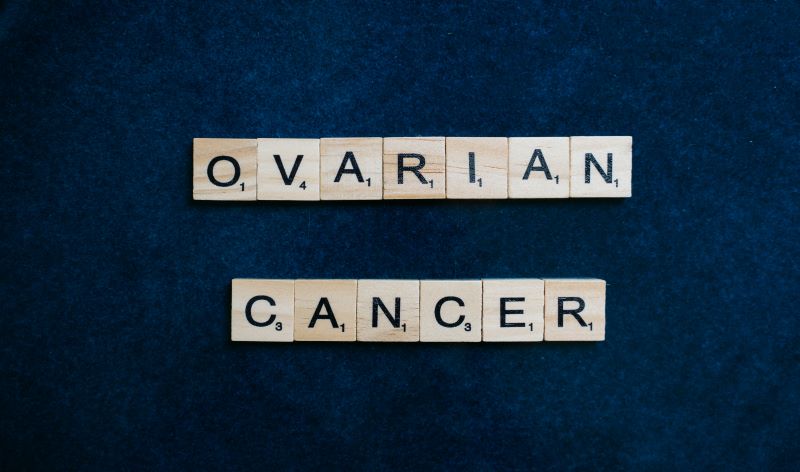What Do We Need to Know About Ovarian Cancer?

According to the Seattle Cancer Care Alliance, 25,000 women are diagnosed with ovarian cancer each year. This may be a worrying statistic, and we understand that the thought of ovarian cancer can be a source of anxiety for many women. We also know that the best way to ease your mind and reduce your risk is to educate yourself as much as possible on the subject.
Below, we outline everything you need to know about ovarian cancer in order to stay educated, vigilant, and prepared!
What is ovarian cancer?
Ovarian cancer is a type of cancer that is found in the female reproductive system. Ovaries are responsible for producing female hormones and eggs, which pass through the fallopian tubes to the uterus, and the tissue lining that covers the organs found in the abdomen is called the peritoneum; ovarian cancer can originate and spread in any of these areas.
As with any cancer, ovarian cancer cells can multiply and spread at a rapid rate.
Types of ovarian cancer
There are many types of ovarian cancer (over 30), which are classified and diagnosed by the type of cancer cell. The most common types, which each have subtypes, are:
- Epithelial ovarian cancer: This is the most common type of ovarian cancer (about 90% of cases are epithelial) and includes subtypes such as serous, endometrioid, clear cell, and mucinous. If ovarian cancer is classified as epithelial, that means it originated in the surface layer covering the ovary.
- Stromal tumors: This type is rare and often diagnosed at an earlier stage. These tumors are found in the connective tissue of the ovaries, where the hormones are produced, and can sometimes produce male hormones.
- Germ cell tumors: These are another rare type most often found in younger people, under 20 years old. These tumors develop from the reproductive cells of the ovaries.
Signs and symptoms
Ovarian cancer can be tricky to catch, as it often doesn’t come with any noticeable symptoms in the early stages. While the symptoms that do occur are common in many other conditions, it’s still important to keep an eye on your health and reach out to your doctor if you have any concerns. Here are some of the most common symptoms and signs of ovarian cancer:
- Fatigue or low energy
- Constipation or other changes in bowel habits
- Indigestion or nausea
- Bloating
- Feeling full more quickly
- Loss of appetite
- Unexplained weight loss
- Changes in menstruation
- Pelvic pain or discomfort
- Back pain
- Frequent urination
Risk factors
It’s important to know if you’re facing a higher risk of ovarian cancer. Risk factors include:
- Certain mutations, like those in the breast cancer susceptibility genes 1 and 2 – also known as BRCA1 and BRCA2; the mutations associated with Lynch syndrome or Peutz-Jeghers syndrome; and BRIP1, RAD51C, and RAD51D. If you’re concerned that your genetics may put you at risk, reach out to your doctor about genetic testing.
- Previous cancer – if you’ve previously had breast cancer, colorectal cancer, or endometrial cancer, you are at a higher risk for ovarian cancer
- Obesity
- Postmenopausal hormone replacement therapy
- Age – Your risk of ovarian cancer increases with age. Two-thirds of women who are diagnosed with ovarian cancer develop it after menopause. You may also be at a higher risk if you started menstruating at an early age or started menopause at an older age.
- Family history of ovarian cancer
- Endometriosis – if you have endometriosis, which is a painful condition that causes endometrial tissue to grow outside of your uterus, you may be at higher risk of ovarian cancer
Prevention and treatment
While no level of prevention can completely eliminate your risk of ovarian cancer, there are a few ways to stay vigilant and lower your risk.
The most important thing is to talk to your doctor about your risk factors. A health professional is the best person to help you and assess your personal risk by looking at your family history and genetics; your doctor may also refer you to a genetic counselor.
If you do have a gene that increases your risk of ovarian cancer, one option is to undergo surgery to remove your ovaries.
Birth control pills, or oral contraceptives, are one option for possibly preventing ovarian cancer. Keep in mind, though, that birth control poses risks of its own, so it’s important to talk to your doctor about whether or not taking birth control pills is a good choice for you.
Ovarian cancer treatment will often incorporate both surgery and chemotherapy. Cancerous tissue will likely be removed in surgery, which may involve the complete removal of ovaries, fallopian tubes, uterus, or lymph nodes.
Chemotherapy, whether oral or intravenous (in which medicine would be injected into your veins), may also be used to shrink and kill cancer cells. Hormone therapy is another treatment option, along with targeted therapy.
Check in with regular gynecological exams
At the end of the day, there’s no sure-fire way to eradicate your risk of ovarian cancer. The best thing you can do for yourself and your body is to make sure you’re talking to your doctor and scheduling regular gynecological exams.
That’s where we can help – schedule an appointment today, and know that with us, you’re always cared for and in good hands.
